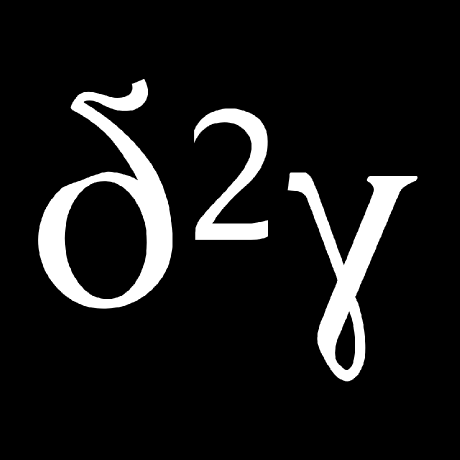Rust GPU Transitions to Community Ownership
We are excited to announce that as of today the Rust GPU project will be transitioning from Embark Studios to community ownership under the Rust GPU GitHub organization. This move marks the beginning of a broader strategy aimed at revitalizing, unifying, and standardizing GPU programming in Rust. We are eager to share more details in the near future but in the meantime if you are a maintainer of a GPU-related Rust project, please reach out!
What is Rust GPU?
Rust GPU makes it possible to write and run GPU software in Rust, leveraging the language's powerful safety and concurrency features to enhance performance and reliability. With Rust GPU, you can seamlessly develop for both CPU and GPU using a unified codebase, all while benefiting from Rust’s existing ecosystem.
The Rust GPU compiler backend emits code compatible with Vulkan, ensuring your code runs across a wide range of devices and vendors.
If instead you wish to stick to the NVIDIA ecosystem, stay tuned as the Rust CUDA project is in the process of being rebooted and possibly integrated with Rust GPU.
To put Rust GPU in context, here's an overview of the current landscape:
- rust-gpu: Compiles unmodified Rust code to SPIR-V (Vulkan) so that it can run on the GPU.
- rust-cuda: Compiles unmodified Rust code to NVVM (CUDA) so that it can run on the GPU. Currently unmaintained but stay tuned!
- nvptx backend in rustc: Compiles unmodified Rust code to PTX (CUDA) so that it can run on the GPU.
- CubeCL: Compute language extension for Rust. Enables annotated Rust code to run on the GPU.
- krnl: Safe, portable, high performance compute (GPGPU) kernels. Enables annotated Rust code to run on the GPU (via Rust GPU).
- cudarc: Minimal and safe api over the CUDA toolkit. Enables calling CUDA from Rust running on the CPU.
- wgpu: A safe and portable graphics library for Rust based on the WebGPU API. Enables communicating with the GPU from Rust running on the CPU.
- naga: A source code translator written in Rust that converts between various GPU-specific shader languages (WGSL**, **GLSL, HLSL, and MSL). These shaders ultimately run on the GPU.
- ZLUDA: A drop-in replacement for CUDA written in Rust. Enables using tools and libraries targeted at CUDA on non-NVIDIA hardware.
- Asahi Linux GPU drivers: GPU drivers partially written in Rust to add Linux support for Apple GPUs.
Why Rust for GPU Programming?
-
Modern and Unified Experience: There is no longer a need to learn a GPU-specific programming language. You can write both CPU and GPU code in Rust, leveraging your existing Rust knowledge and maintaining a consistent development experience. Furthermore, the same code can run on both the CPU and GPU, with divergent behavior gated behind
cfgattributes and macros where necessary.Even if your current codebase isn't written in Rust, choosing Rust for the GPU parts instead of GPU-specific languages gives you more widely applicable skills in one of the fastest-growing languages on GitHub. Rust is also one of the most admired programming languages while GPU-specific languages are considered a necessary evil.
-
Fearless Concurrency: Rust's ownership model and type system guarantee memory safety, minimizing bugs and undefined behavior. Rust's borrow checker also enables fearless concurrency, which is essential for maximizing performance on massively parallel GPUs.
-
Powerful Abstractions: Programming in GPU-specific languages can often feel like taking a step back to the 90s, where primitive tools and sharp edges abound. Because of this, code written for GPUs is simplistic with low cyclomatic complexity. Rust has an expressive type system and zero-cost abstractions that enable writing high-level, reusable code without sacrificing performance. This approach leads to more maintainable and sophisticated GPU programs, streamlining the development process and enhancing productivity.
-
Leverage Existing Ecosystem: The state-of-the-art for sharing GPU code is copy and pasting. With Rust GPU we are excited to bring the excellent
cargoand crates.io ecosystem to GPU programming and provide some sanity.Additionally, Rust's
no_stdecosystem offers a wide array of libraries that can be used in environments without the standard library. Traditionally this has meant embedded devices, but a lot of the same assumptions apply to GPUs! As a consequence, you can reuse existingno_stdlibraries from crates.io in your GPU code without the authors explicitly adding GPU support. This is uniquely enabled by Rust GPU's implementation choices and Rust's registers. Sharing and reusing code from the greater Rust ecosystem is a superpower when writing GPU programs that will massively compound over time.Soon developers will write and share Rust libraries that require running on the GPU, similar to how some existing open source libraries require a specific OS or CPU architecture. We expect many innovative GPU-specific algorithms and projects to be built in Rust.
A Heartfelt Thank You to Embark
First and foremost, we extend our deepest gratitude to Embark Studios for their incredible work in kickstarting and supporting the Rust GPU project. Their dedication and contributions have been invaluable, laying a strong foundation for the future. The community is immensely grateful for all the resources and expertise Embark has poured into this project.
Transition Challenges: Repository Transfer
Unfortunately, Embark has decided not to transfer the existing repository via GitHub's transfer tool, which means we will lose all our stars, issues, and pull requests. Additionally, automatic GitHub redirects will not be added. All this causes avoidable churn.
We have not fully transitioned to the new community-owned repository due to these downsides and we believe the best course of action is to encourage Embark to reconsider and simply press the GitHub transfer button, easing this transition for everyone involved. We appreciate the community's patience and understanding as we get things sorted out and we'd love your support encouraging Embark to reconsider the mechanics of the transfer.
New Focus: GPU Compute and GPGPU
With the industry's growing emphasis on generative AI and LLMs, we are shifting our primary focus towards GPU compute and General-Purpose GPU (GPGPU) programming. This also aligns with the trend in GPU hardware to increasingly utilize the compute capabilities of GPUs to run graphics pipelines as software libraries rather than relying on specialized hardware. Even graphics-focused programs such as video games are moving away from solely relying on graphics pipelines and instead running as much of the engine as possible in GPU compute.
In the past, the primary focus on graphics use-cases did not materialize the necessary contributors and community engagement to make the Rust GPU project sustainable. We hope our new focus will attract more contributors and users.
However, it is important to note that graphics use-cases will continue to be supported, developed, and improved in Rust GPU! We appreciate our early graphics adopters and remain committed to enhancing the graphics capabilities of Rust GPU.
Addressing Stability and Nightly Rust
Though Rust GPU requires the nightly version of Rust, Embark had unique stability goals
which resulted in Rust GPU not tracking the latest nightly. This has been a hurdle for
adoption, as most people experimenting with Rust GPU are likely already on nightly to
get the latest and greatest, not use a randomly chosen nightly from months ago. To
address this, we will be tracking the latest Rust nightly builds moving forward. For
those concerned about stability, you can pin to a particular nightly version via rust-toolchain,
and there are ways to build your GPU code with nightly while keeping your CPU code on
stable.
With today's release we are closer to this goal but we aren't quite tracking the latest
nightly yet as some newer rustc changes require more substantial changes to Rust GPU's
compiler backend.
Short-Term Roadmap
Our immediate focus is on the following tasks:
- Merge all outstanding work.
- Track the latest Rust nightly. Stay up-to-date with the latest developments in Rust and catch changes that break Rust GPU's compiler backend as soon as they land upstream.
- Release more often. Increase our release cadence to deliver improvements and fixes more frequently, as well as aid in debugging issues.
- Extend/update documentation, FAQ, and guides. Provide solutions to common problems and usage scenarios and document unsupported language constructs.
- Better compatibility.
- Fully switch to quasi-pointers to support more advanced Rust constructs.
- Add
allocsupport. This will allow us to use even moreno_stdcrates that also allocate memory.
- Better testing.
- Develop our own crater-like tool to create a burndown list of
no_stdandalloccrates that don't work with Rust GPU. - Implement a differential testing harness.
- Establish ecosystem CI similar to the SWC project.
- Develop our own crater-like tool to create a burndown list of
Long-Term Vision: First-Class GPU Targets in Rust
Looking further ahead, one of our ambitious goals is to merge Rust GPU or its successor into the Rust compiler itself. We want to make GPUs (and TPUs and NPUs) first-class targets in Rust and make programming them as ergonomic as CPU programming. Hardware is shifting from scalar, serial processing to matrix, parallel processing—software must do the same. We are excited about the future of Rust GPU and the potential it holds.
Thank you for your continued support and contributions. Stay tuned for more updates, and don't hesitate to reach out if you have any questions or want to get involved.
Happy coding!

